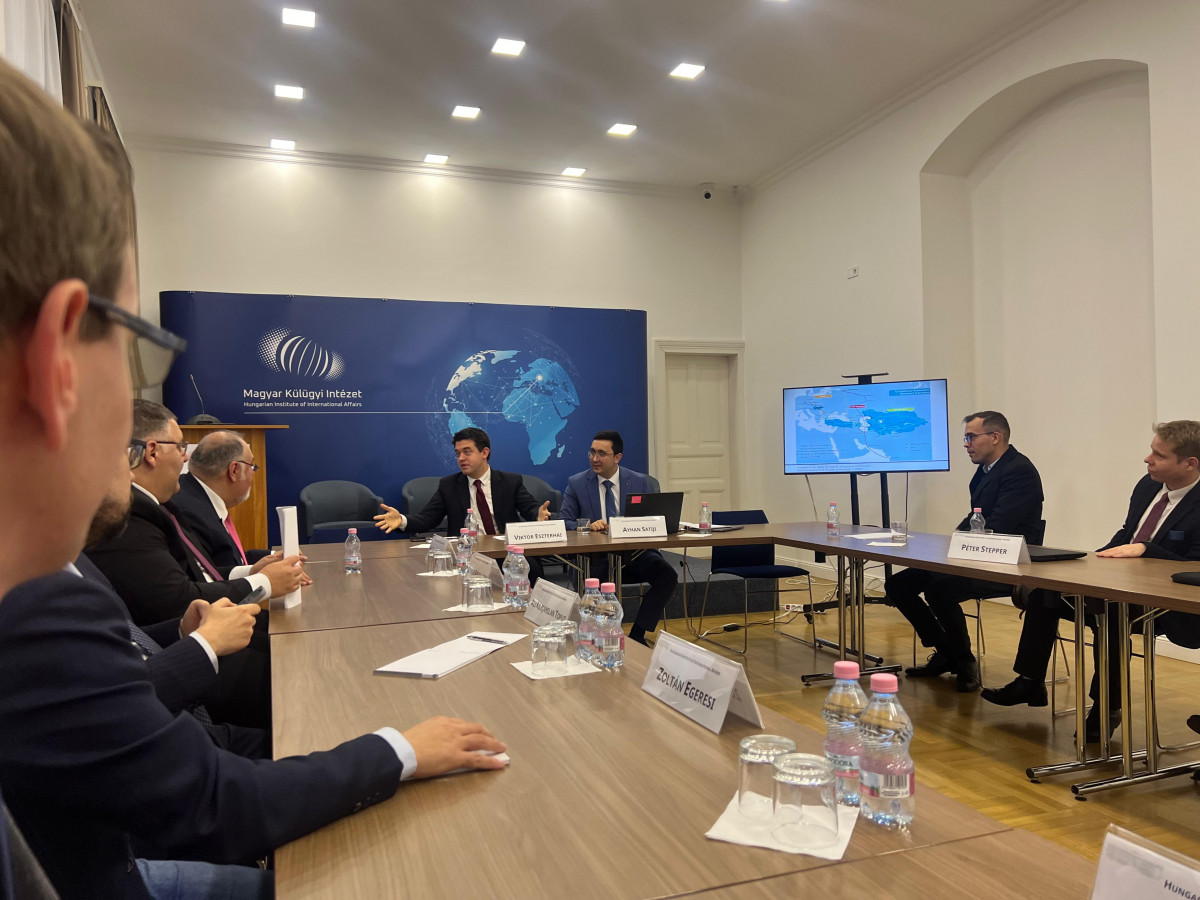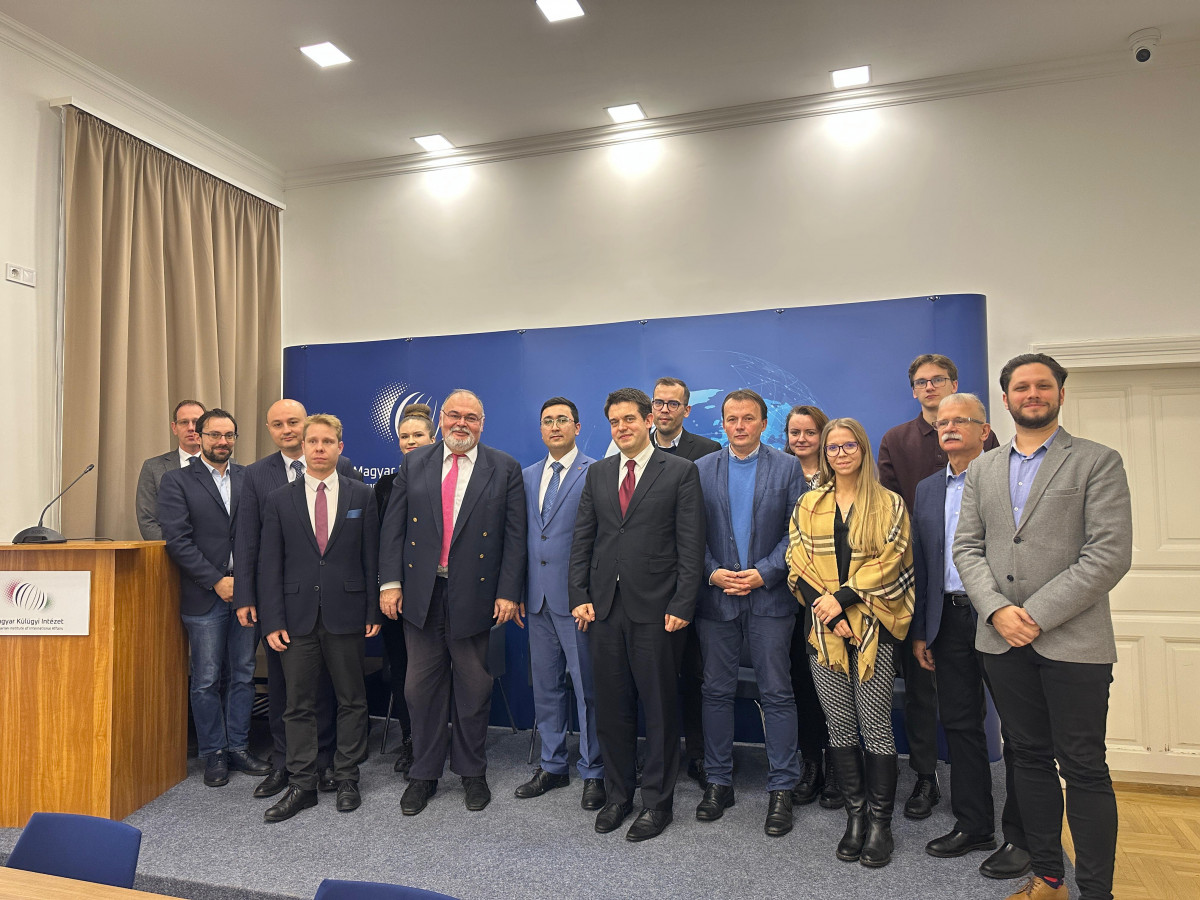
Representative of CAERC prepared proposals for the Middle Corridor for V4 countries
Ayhan Satıcı, the head of the Turkish World Research Center (TWRC) under the Center for Analysis of Economic Reforms and Communication (CAERC), has successfully concluded a cooperation program involving research on various economic areas organized by the "Think Visegrad-V4" think tank platform and the Hungarian Institute of International Relations (HIIA). The program, spanning from November 6 to December 3 of the current year, took place at the central office of HIIA in Budapest, Hungary.
As part of the cooperation program, A. Satıcı, the head of TWRC, conducted a field study on "Researching the impact of the Middle Corridor on Visegrad Group (V4) countries: opportunities, challenges, and political-economic consequences." He presented the obtained results to researchers and diplomatic representatives of V4 countries (Czech Republic, Hungary, Poland, Slovakia).
The Middle Corridor, also known as the Trans-Caspian International Transport Route, connects Europe and Asia. The Visegrad Group, comprising Poland, Hungary, the Czech Republic, and Slovakia, stands out as a dynamic region in terms of trade and economic growth. Due to their strategic geographical location, these countries have the opportunity to benefit from the potential of the Middle Corridor, enhancing connectivity and increasing trade diversification. In this study, the opportunities presented by the Middle Corridor for the V4 countries in terms of trade expansion, investment attraction, and regional integration were revealed by applying network analysis based on graph theory.
Moreover, the countries located in the Middle Corridor are cooperating within the framework of the Organization of Turkic States (OTS). Hungary, one of the V4 countries, holds observer status in the OTS, creating greater opportunities for joint and effective utilization of the potential of the Middle Corridor.
In summary, the results of this study can serve as an academic basis for making important economic and political decisions for the V4 countries and other stakeholders interested in the development of the Middle Corridor. The study provides evidence-based recommendations for decision-makers to effectively utilize the opportunities offered by the Middle Corridor, prepare for potential challenges, and promote greater regional cooperation.










Op-eds
Agil Asadov
Head of the Strategic planning division
"Azerbaijan-China Relations: Formation and Perspectives"
Isa Gasimov
Head of the “Enterprise Azerbaijan” portal
Social entrepreneurship is an important tool for economic sustainability
Vusala Jafarova
Head of the Turkic World Research Center
"Driving Economic Integration and Digital Transformation: Azerbaijan’s Strategic Leadership in the Organization of…
Vusala Jafarova
Head of the Turkic World Research Center
"Azerbaijan’s Admission to the D-8: Strengthening Economic Cooperation with Global Potential"
Vusala Jafarova
Head of the Turkic World Research Center
Turkic States Economic Outlook for the First Half of 2024: Growth, Trade, and Investment Trends
Agil Asadov
Head of the Strategic planning division
Moody's: Growing influence of the Middle Corridor boosts economic prospects
Vusala Jafarova
Head of the Turkic World Research Center
The Karabakh Declaration and the future of economic cooperation of the Turkic world